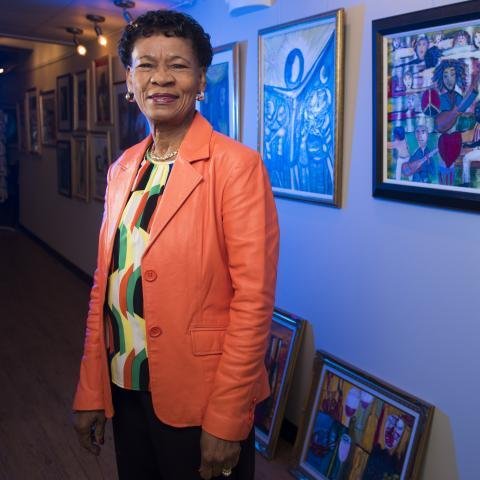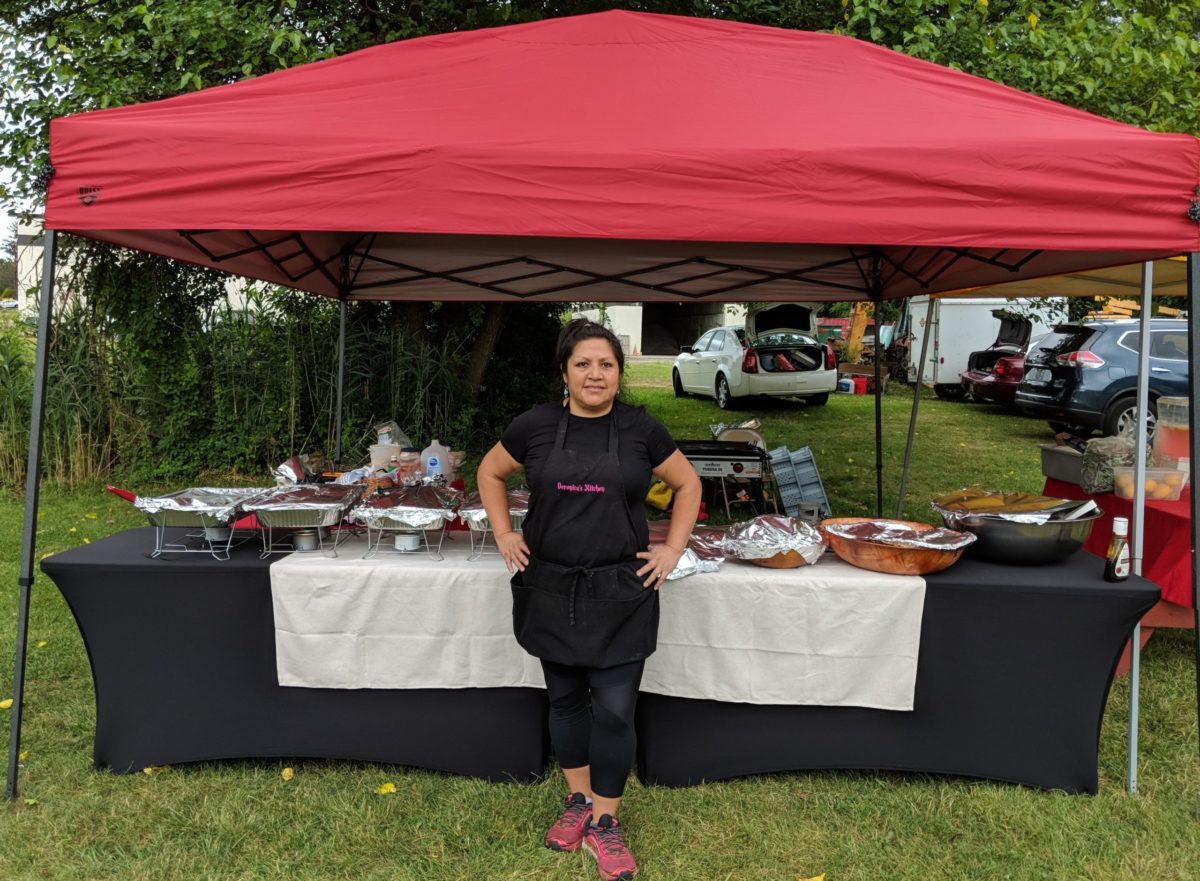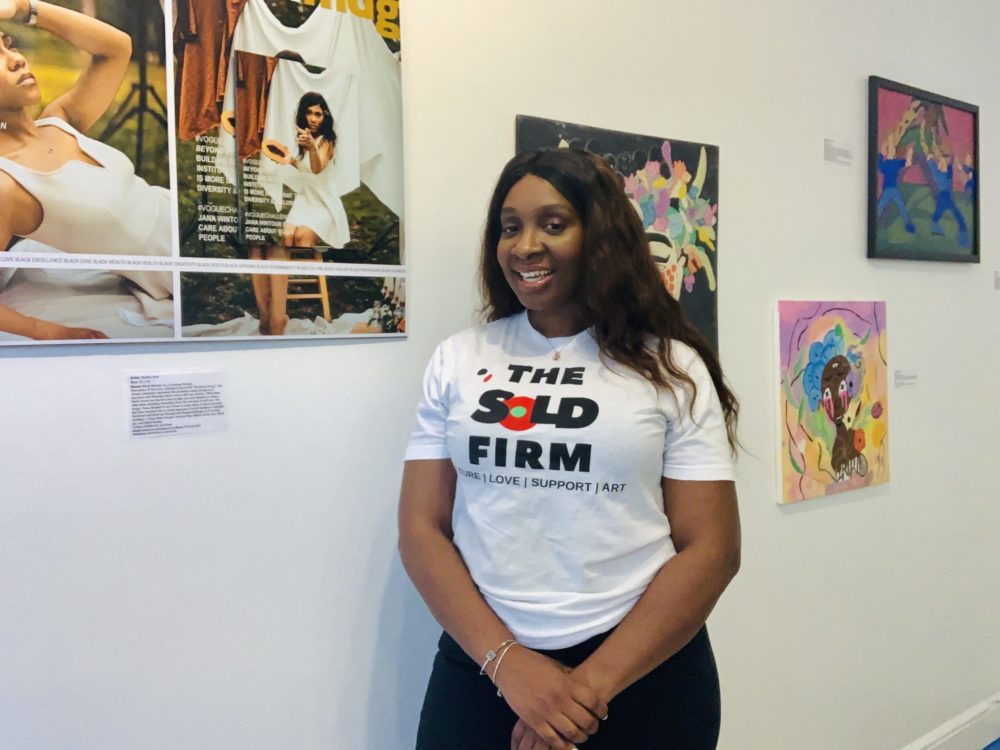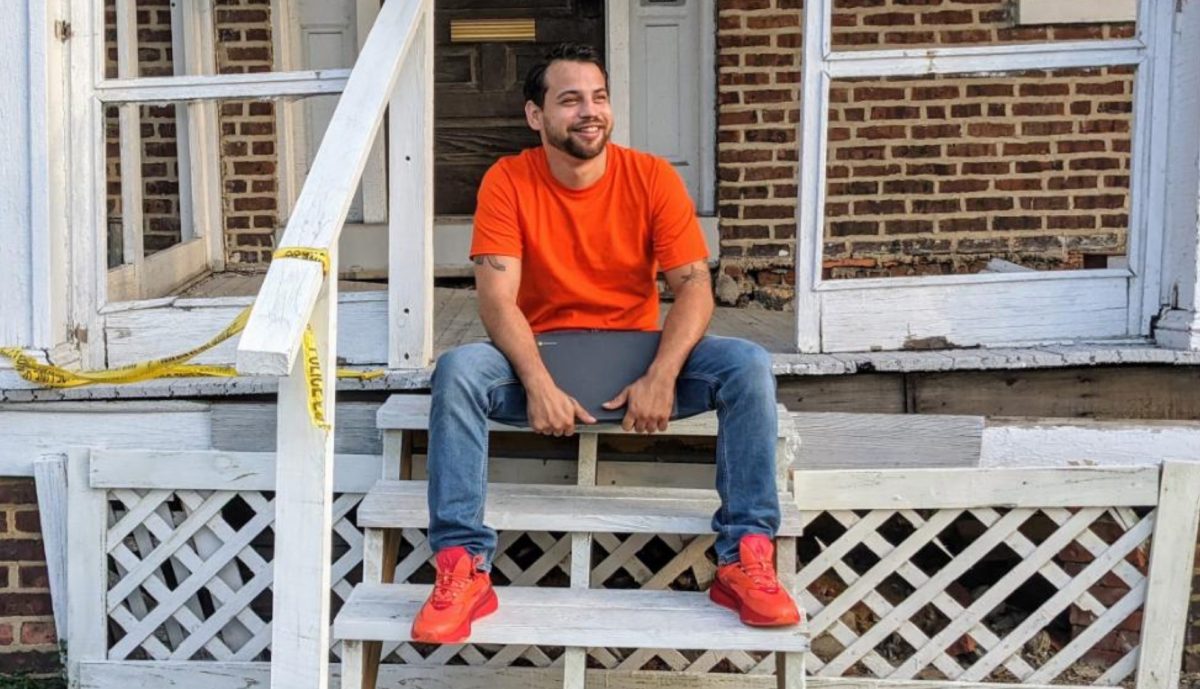
This editorial article is a part of Racial Equity in Tech Month 2022 of Technical.ly's editorial calendar. This month’s theme is underwritten by Spotify. This story was independently reported and not reviewed by Spotify before publication.
It’s the summer of 2022. Do you know how your city’s entrepreneurs of color are faring?
It’s a question Technical.ly asked in the summer of 2020 after we teamed up with the nonprofit Wilmington Alliance for a 12-part series called Seeking Equity in Wilmington. We spoke with a dozen Black and Latinx entrepreneurs in New Castle County, all coping during a year of pandemic, anti-Black police brutality and nationwide protests, continued immigration issues and a mismanaged Paycheck Protection Program (PPP) that favored the historically advantaged.
The stories were published digitally on Technical.ly and physically by Wilmington Alliance, which distributed it to Delaware policymakers. The goal was to boost these stories in order to identify gaps in support for small business entrepreneurs of color.
In June 2022, we reached out to all of the participants for a follow-up on how their businesses are doing now. Out of the 12, seven responded and were interviewed by email, phone or Zoom.
We heard about growth and of continuing struggles. A sense of invisibility lingers, lack of funding is still a top issue, and there is a recurring theme of wanting to build an ecosystem from within rather than under the guidance of system-based orgs.
Malcolm Coley: “No more middlemen”

Malcolm Coley. (Courtesy photo)
Millions of CARES Act funding was delivered to the states since 2020, some of it earmarked to help programs that help minority businesses. Often, that money goes to organizations outside of those communities — referred to as “middlemen” intra-communally — instead of to organizations already embedded in them, like the Black-founded WIN Factory Wealth League.
Malcolm Coley, a cofounder of the WIN Factory Wealth League, Influencers Lab Media, Futures First Gaming and Spending Black Matters, spoke to Technical.ly along with WIN Factory cofounder Tamara Morris in 2020 about a lack of direct investment in the Black-owned organization. WIN is an active part of Wilmington’s Black entrepreneur community that has been working to provide resources for growth for years.
Today, along with cofounder Newdy Felton, Coley’s farthest-reaching project is Spending Black Matters, a now-national network of over 32,000 Black entrepreneurs who pool their resources and expertise to help each other fill the gaps that outside “minority business” initiatives may leave behind.
“We are in a space where people are making thousands of dollars inside the group, and people are contacting other businesses within the group to work for their business,” Coley said. “Now we’re kind of in a position where we want to not only scale our business, which is happening, but we now also have the people and the resources that can help small businesses scale.”
Spending Black Matters has yet to receive outside funding to help it grow, and in turn, help other Black-owned small businesses fill these gaps. But Coley is hopeful that, as it grows, the team will have the opportunity to receive the kind of funding other organizations receive.
“We need to have direct relationships with these [funding] entities,” he said. “No more middle people. That’s the real issue. No more middlemen. Talk directly to these people.”
As for the WIN Factory Wealth League, it will be relaunching in-person events and workshops at its downtown coworking space, often in conjunction with Spending Black Matters.
Eunice LaFate: “I see a light at the end of the tunnel”

Eunice LaFate. (Courtesy photo)
Folk artist Eunice LaFate, owner of the LaFate Gallery in downtown Wilmington, got two major pieces of good news last year: First, she landed a major sale. Second, she landed a COVID recovery grant.
Unfortunately, the sale skewed her financials for the year to the extent that the grant, given to businesses that took a loss due to COVID, while not rescinded, was converted to a loan.
“It was a one-time sale,” LaFate said. “Now I have interest growing on a ‘grant’ which I thought was taking me out of a financial hole.”
Despite that frustration, LaFate says her business is doing better now than then, though she notes that it’s not because of art sales.
“My business has been surviving by what you call residual income — that income, because of my teaching background and skills, I’ve been leveraging,” she said. “That, and I was able to get classes in an after-school care program with Urban Ministries, a grant from Highmark, which hired three artists and musicians, and we went to different locations to do music and art.”
One area that has gotten better is getting her work displayed in local corporate offices. For that, she praises companies like Marlette Funding and Buccini/Pollin, as well as the Kenney Family Foundation and the Delaware Black Chamber of Commerce.
“I come from corporate America, and I come down very hard on corporate America,” she said. “When I see them do something right, I hail them.”
In addition to her regular gallery sales and classes, LaFate holds charity sales benefiting nonprofits.
Irene Castañeda: “I have to keep fighting for opportunities”

Irene Castaneda, founder of Veronica’s Kitchen. (Courtesy photo)
Irene Castañeda was struggling to keep her restaurant business, Veronica’s Kitchen, afloat in 2020. Having immigrated from Mexico in the ‘90s, her personal story captures attention. She was one of the first entrepreneurs accepted into the Kitchen Collective, Wilmington’s food entrepreneur incubator, in 2021, but the barriers turned out to be too great.
“I didn’t pass my ServSafe test. I believe it was the language,” she said referring to the Spanish-English language barrier. “I said, ‘Well, if you have another opportunity that I can take the test,’ but nothing ever happened. I was one of the first people [in the cohort], and they used my story.”
Today, Castañeda is back where she was before Veronica’s Kitchen was a pre-pandemic pop-up restaurant, getting ready to sell her food weekly at Cool Springs Farmers Market, with the occasional catering contract.
“I have to keep fighting for opportunities,” she said. “Especially because I’m a woman. It’s not equal.”
In 2020, she said she was unable to get a business loan, even with support from an entrepreneurship program. That hasn’t changed: Securing funding was, and is, her biggest challenge.
Still, she’s not giving up.
“I’m going to learn more English,” Castañeda said. “I’m going to be more prepared. And hopefully, in one more year I can be ready to open my own business. One day I’m going to help my community if I can by using our stories, because everybody like me has a backstory.”
Linda Watson: “Keeping a steady flow of income is a challenge”

Linda Watson, founder of Mädō Agency. (Courtesy image)
Linda Watson, owner of the digital design company Mädō, faced both accessibility issues as well as financial ones as she struggled to bring in enough clients to stay afloat in 2020. Though she’s one of the cofounders of WIN Factory Wealth League, she moved her business to the wheelchair-accessible XPO Suites in Downtown Wilmington.
Today, she says, the company is growing, with many opportunities coming her way.
While things are doing better, challenges remain in the often unpredictable contractor industry.
“Keeping a steady flow of income is a challenge,” she said “I try not to over push with work. If I take on contract work, the problem I have is the payout has been delayed and the clients haven’t been great with their response time so I could complete the project and get paid in a nice turnaround and be able to move on to other large projects.”
Nataki Oliver: “Everything I got is from the muscles”

Nataki Oliver at The Sold Firm. (Courtesy photo)
Nataki Oliver has always been self-sufficient, supporting her art gallery, The Sold Firm, with a full-time job.
Despite being located in Wilmington’s Creative District, a placemaking initiative born in 2013, The Sold Firm is the only art gallery on the block. That makes it hard to participate in events like the Art Loop, and regular foot traffic is low, though the gallery has partnered with The Rock Lot, one of the Creative District projects.
“[The gallery] really never picked up the momentum from where I started,” she said. “I’ve definitely had to change a lot of things as far as marketing, different strategy. It just literally had to change.”
In 2020, the social justice themes of the art Oliver showcased exclusively did sell. Those themes still resonate, but over the last couple of years, the approach has broadened.
“Looking at the trends of what’s happening, I have to continue to just keep pushing on a lot of different areas,” Oliver said. “Definitely social justice doesn’t stop, but, you know… things are changing, so I had to change who I was marketing to, and tighten that up. I have to keep in mind, I’m not a nonprofit, so I have to move in that direction.”
Even with those challenges, Oliver has a positive outlook.
“Financially, I am actually doing a little better,” she said. “And when I say ‘a little better,’ things are happening on a long-term basis. Outside of just the selling of the art, I’ve now been able to build partnerships.”
One of those partnerships is Downtown Visions, which connected with her so The Sold Firm now participates in its seasonal weekly Curbside Happy Hours, and Wilmington Alliance.
Finances remain the biggest challenge.
“I wasn’t fortunate to get the PPP that everybody else got,” she said. “So everything I got is from the muscles.”
In fact, Oliver says, she hasn’t gotten any funding or grants, though she says she didn’t always apply to the other grants made available with CARES Act funds: “So much was going on, and it was hard to determine which one is a grant or a loan, you know?”
Markevis Gideon: “We’re looking at sustainable ways to take out a large amount of capital without selling our businesses”

Roger Chaufournier and Markevis Gideon of NERDiT Now. (Courtesy photo)
NERDiT Now’s nonprofit, NERDiT Foundation, spent the early days of the pandemic tirelessly distributing free refurbished laptops to Delaware kids who needed them to be able to continue their schoolwork virtually.
The foundation’s work was supported by a grant and a small PPP check. Meanwhile, the for-profit device repair company cofounded by Markevis Gideon was on the brink — no income, no PPP, a brick-and-mortar lease and employees to pay.
Since then, the one-time “Shark Tank” pitchman Gideon has managed, with the help of funding from private corporations including Barclays Bank and Capital One. They’ve helped NERDiT Now to not only get the company back on its feet, but to expand, including with an IT recycling service, the addition of CFO Roger Chaufournier last year, and taking on entrepreneurial networking opportunities through Meta and Goldman Sachs.
“We’ve picked up recycling clients including the whole school district of Red Clay,” Gideon said. “We have three locations in First State Plaza and we’re about to open up a workforce development location in Downtown Wilmington, working with [The Mill founder] Rob Herrera.”
The new downtown location will accommodate 25 students at a time, versus just five at the Newport location. The NERDiT Now program focuses on IT hardware repair, desktop and network Integration. Some graduates of the program will be hired into the company’s growing refurbishing business, which is currently in First State Plaza but will move to a larger space in Wilmington.
“We’re looking to hire a lot more people in recycling,” he said. “A lot of warehouse.”
One area of NERDiT Now that is on the back burner for now is the tech kiosks that had been a focus of the business’ growth a couple of years ago, as recycling expands.
While there’s no doubt that NERDiT Now is doing better than it was in the summer of 2020, challenges remain.
“Right now, it’s more access to capital,” he said. “We’re looking at sustainable ways to take out a large amount of capital without selling our businesses. You see other businesses, they often have wealth already within their family. We don’t have that luxury. So we’re looking at different CDFIs and the capital we’re working with to make this sustainable request because we really want to take a really big stance.”
Danny DeJesus: “We constantly learn from the past”

Danny DeJesus. (Courtesy photo)
Danny DeJesus, founder of Urban Tech Hero (called United Tech Project in 2020), overcame the odds and now devotes himself to helping returning and formerly incarcerated citizens like himself start new lives with jobs in the tech sector.
After a recent rebranding, we ran an update on his story, where he talked about the rebrand and the organization’s partnership with Google Career Certificates, making it easier to offer the free educational services to UTH’s clients.
“We had to do a lot of reinventing ourselves,” he said. “However, we are communicating to the people we serve better. We constantly learn from the past and shape our organization’s future.”
Although the Google partnership has been a boost, it hasn’t solved all of UTH’s challenges.
“Funding is still our biggest challenge,” DeJesus said. “Usually, for smaller organizations, it is much harder to come by.”
Now what?
While it’s encouraging that most of the founders we featured in 2020 report that they’re doing better today, it’s clear that gaps still remain, especially when it comes to financing. There is no easy answer to this — but there is support available.
- Spending Black Matters, as Malcolm Coley mentioned, is a network of Black entrepreneurs who support each other and help each other grow. (Latinx entrepreneurs are also welcome.) It’s free to join the group on Facebook, where you can also learn about the group’s expansion plans.
- Delaware Black Chamber of Commerce, founded by Ayanna Khan in 2020, is a growing network of Black entrepreneurs that offers business growth and development courses and other benefits.
- True Access Capital offers free assistance to small businesses owners of color, including loan application package, business planning process and follow-up services.
- First Founders, founded by Garry Johnson III, is on a mission to lower barriers to entry and increase the likelihood of success in the innovation ecosystem for underrepresented founders by creating access to educational programming, relevant networks, and funding opportunities, including the PhilaDelaware crowdfunding network on Wefunder.
- Equitable Entrepreneurial Ecosystem (E3) is an entrepreneurial mentoring network in all Delaware counties that connects entrepreneurs seeking support with established business advisors and coaches, with the goal of increasing equity statewide.
- Startup302, Delaware’s annual funding competition, is for tech-enabled startups by founders of color.
- Wilmington Strong Fund is still accepting grant applications for one-time $1,000 microgrants to businesses in Wilmington. If you do not have a business license (required for application), Wilmington Alliance will help you get one through one of its partners.
- Kiva Delaware offers 0% small business loans from $1,000 to $15,000.
- WilmingtonMADE is a community-driven network of small business owners with an online directory
- Emerging Enterprise Center, part of the New Castle County Chamber of Commerce, offers online business resources for free, as well as funding opportunities such as the annual Swim with the Sharks pitch competition.
- Latin American Community Center can help fill gaps for adult English learners with free ESL classes, as well as computer classes.
- Delaware State University, Delaware’s HBCU, offers online and in-person MBA programs at its highly connected Wilmington campus.
Join the conversation!
Find news, events, jobs and people who share your interests on Technical.ly's open community Slack

Delaware daily roundup: Delmarva Power vendor stats; DelDOT's $15M federal grant; 50 best companies to work for

Delaware daily roundup: Over 4,000 Black-owned businesses uncovered; Dover makes rising cities list; a push for online sports betting

Delaware daily roundup: Ladybug Fest illuminates small biz; Hahnemann Hospital's biotech future; intl. politics and a Middletown project


